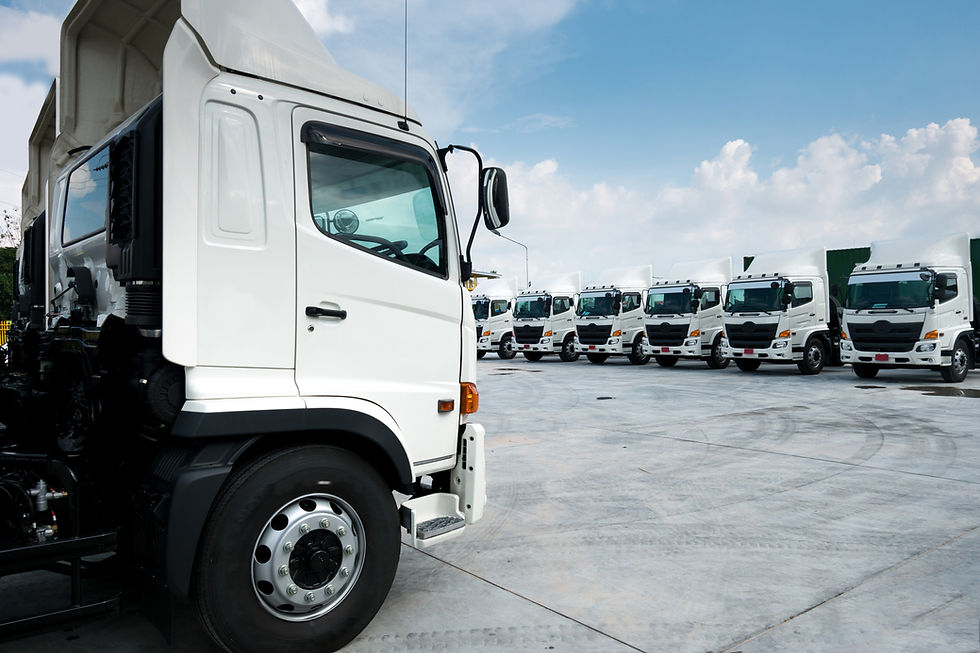How NYC's Congestion Pricing Will Reshape Freight, LTL, and Cartage Services – And Why Intercept Logistics Leads the Way
- Brock Scott
- Mar 28, 2024
- 2 min read
Updated: Apr 2, 2024
New York City's decision to implement congestion pricing has sent ripples through the logistics industry, particularly among companies offering freight, less than truckload (LTL), and cartage services. As one of the busiest metropolitan areas in the United States, the introduction of congestion pricing in New York and its potential impacts demand a closer examination.

The Impact of Congestion Pricing on Logistics
Increased Costs and Operational Adjustments
The congestion pricing plan, as approved by the MTA board, introduces fees for entering certain parts of Manhattan, particularly the most congested areas. For logistics companies, this translates to increased operating costs, necessitating strategic adjustments. Businesses will need to optimize routes to minimize fees and consider consolidating deliveries to reduce the frequency of trips into the charged zones.

Encouragement of Off-Peak Deliveries
To mitigate some congestion pricing impacts, companies may shift delivery schedules to off-peak hours. This adjustment could benefit businesses by reducing congestion-related delays outside the pricing scheme but requires a reevaluation of delivery operations and customer expectations.
Investment in Cleaner Technologies
Given that one of the aims of congestion pricing is to improve air quality, there is an implicit push towards using more environmentally friendly vehicles. Companies investing in electric or hybrid fleets might find themselves at an advantage, potentially qualifying for exemptions or reduced fees.
The Strategic Position of Intercept Logistics

Amid these challenges, Intercept Logistics stands out as a beacon for businesses navigating the complexities of freight and last-mile delivery services in the congestion-priced landscape of New York City.
Expertise in the New York and New Jersey Metro Areas
Intercept Logistics boasts unparalleled knowledge of the New York and New Jersey metro areas. This expertise allows for innovative routing strategies that minimize congestion pricing's financial impact while maintaining timely deliveries.
Optimized Last-Mile Distribution Solutions
For businesses particularly concerned about last-mile distribution within the congestion fee areas, Intercept Logistics offers tailored solutions. Leveraging advanced technology and an in-depth understanding of local regulations, Intercept ensures that last-mile deliveries are efficient, cost-effective, and sustainable.
Commitment to Sustainability
Understanding the environmental goals behind congestion pricing, Intercept Logistics is at the forefront of integrating clean vehicles into its fleet. This commitment not only aligns with the broader objectives of congestion pricing but also positions Intercept as a forward-thinking partner for businesses aiming to reduce their environmental footprint.

Conclusion
The implementation of congestion pricing in New York City poses undeniable challenges for logistics companies, especially those specializing in freight, LTL, and cartage services. However, it also presents an opportunity for businesses to reassess and improve their logistics strategies, particularly regarding sustainability and efficiency.
For companies operating in or through the New York and New Jersey metro areas, partnering with Intercept Logistics offers a strategic advantage. With its expert knowledge, tailored last-mile distribution solutions, and commitment to sustainability, Intercept Logistics is not just navigating the changes brought by congestion pricing; it is leading the way.
In a landscape reshaped by congestion pricing, businesses that align with logistics providers like Intercept, known for their reliability and innovative approaches, will be best positioned to thrive. Intercept Logistics is not merely a provider; it's a partner for navigating the future of urban logistics in one of the world's most dynamic metropolitan areas.



